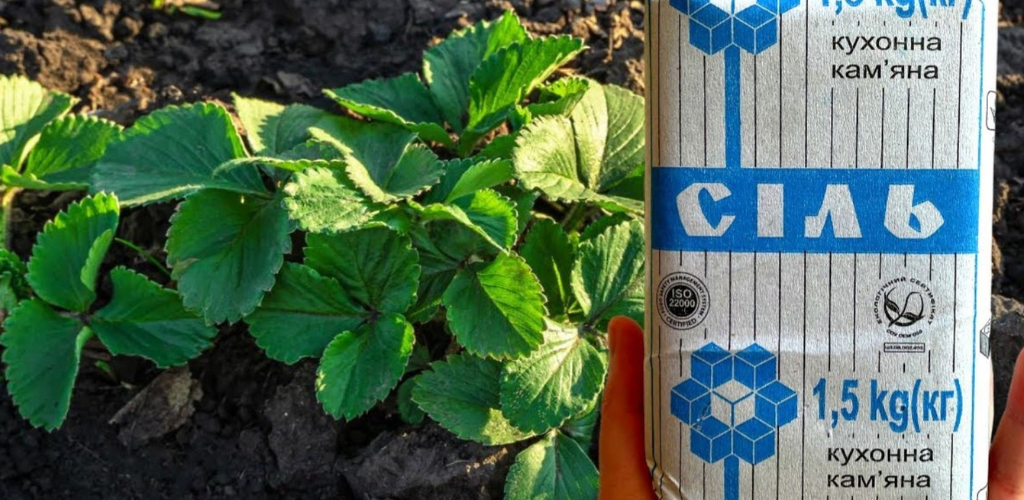Baking soda in the garden: 10 varied applications and useful tips
Baking soda is a chemical compound in the form of a non-toxic white powder with many uses in daily life. Maybe you use it quite often if you are a baking enthusiast, enjoy it as an eco-friendly cleaner, keep it next to the stove in case of a frying fire, or in the bathroom as a teeth whitening agent? In short, baking soda (also sodium bicarbonate) proves to be a versatile biodegradable substance that serves us well in the home. But did you know that it can also be used for various purposes in the garden? How exactly to take advantage of the beneficial properties of baking soda in the garden, find out in the following paragraphs.
Baking soda in the garden in 10 smart uses
Baking soda in the garden is mainly used as a fungicide. Its abilities to combat parasitic fungi on plant species have been known for many years, and people use it quite frequently to combat powdery mildew or downy mildew.
Baking soda, an ecological ally in the fight against parasitic fungi
A good homemade and completely ecological fungicide solution is one teaspoon of baking soda per liter of water. Keep in mind that too concentrated a solvent can burn the leaves of your plants.
Fight weeds with baking soda
Forget herbicides and other toxic and expensive weed control agents. Although baking soda will not kill them completely, it will help you limit their growth in an environmentally friendly way, as it is a non-toxic and completely biodegradable compound.
Opt for a non-toxic and completely biodegradable herbicide
You can get rid of crabgrass (lat. Digitaria) by spraying it directly with baking soda, as long as you are careful not to damage surrounding plants.
Baking soda to test soil pH level and regulate it
Using baking soda, you can easily check whether the soil in the garden is acidic or basic. Water the surface of the soil and then sprinkle some baking soda over it. If small air bubbles appear on the surface, the soil has a pH level below 7 and is quite acidic.
Refreshes and balances the soil of flowering plants that need an alkaline medium
Speaking of which, this acidity can compromise the flowering of your plants and help the development of weeds. Additionally, some flowering plants such as begonias and geraniums like very alkaline soils and will die in acidic soils. How to balance the pH? Using baking soda, of course!
Baking soda to preserve flower bouquets for a long time
In addition to being a fungicide, herbicide, and pH regulator, baking soda is also a preservative. Enjoy your beautiful cut flowers for a long time by filling the vases with the following solution: 1 tablespoon of sodium hydrogen carbonate, ½ tablespoon of ammonia, 1 tablespoon of Epsom salt (magnesium sulfate) per 4 liters of water.
How to Grow Sweet, Juicy, Tasty Tomatoes
If your tomatoes don’t seem very tasty or a little dry, don’t worry! Sprinkle a few pinches of baking soda on the soil where the tomatoes grow and they will be more delicious and juicy.
Fight against slugs and snails without compromising nature.
If you have problems with prolific slugs in the garden, you can easily destroy the little creatures by sprinkling them with a little baking soda.
Get rid of caterpillars attacking your cabbages
It’s hard to believe, but many parasites simply hate baking soda. Get rid of aphids and scale insects, prevent ant attacks and even limit certain burrowing animals by spreading baking soda in the garden, where necessary. It is also quite effective against caterpillars that attack your cabbages.
Neutralizes bad odors from composters in the garden
If you have a composter in the garden, you can reduce the smell a little by sprinkling it with baking soda. As it is an excellent deodorant, it will absorb unpleasant odors.
Clean bird feeders, nests and waterers with a non-toxic agent
In addition to being a great cleaning agent for your gardening tools or other outdoor items, you can also use baking soda to clean bird baths and feeders. As it is non-toxic and biodegradable, it will not cause any negative effects on the cute creatures.
Removes lime deposits from terracotta pots naturally
Calcium deposits that form over time in clay and terracotta pots can be easily removed by soaking them in a solution of warm water and baking soda in the proportion of one teaspoon per liter. Leave them like this for a few hours and your pots will be impeccable.
Clean hands and nails even after a long day of gardening.
After a long day of gardening, easily wash your hands and whiten your nails with… yes, you guessed it: the miraculous baking soda!
